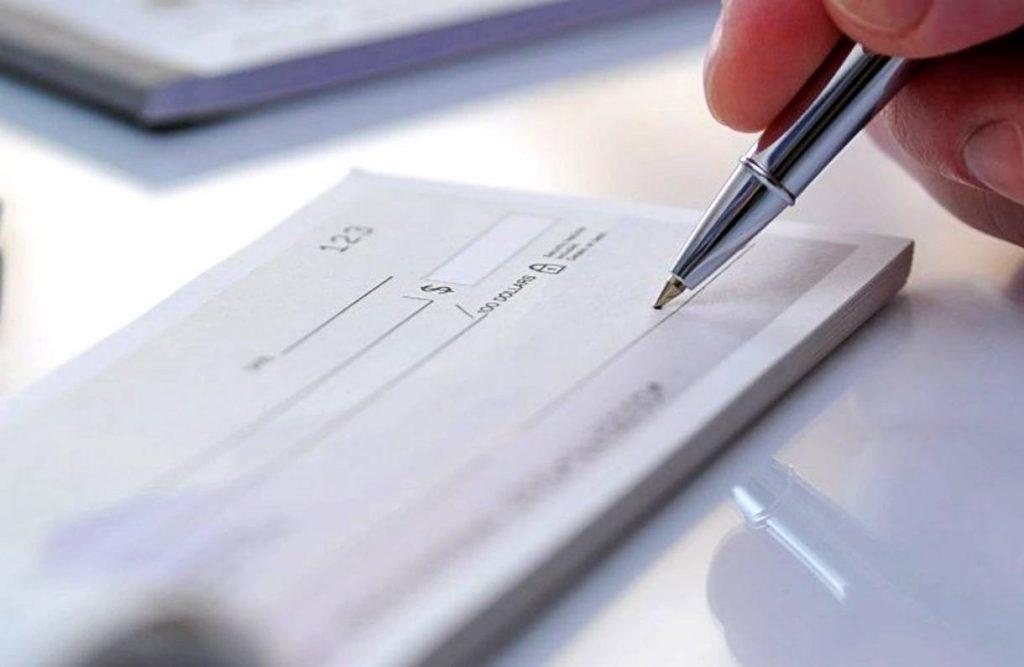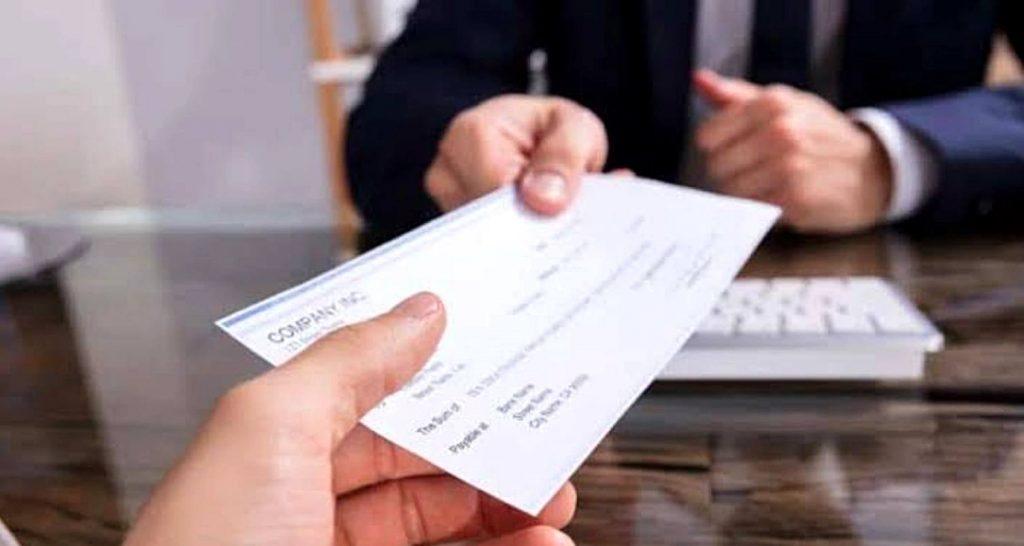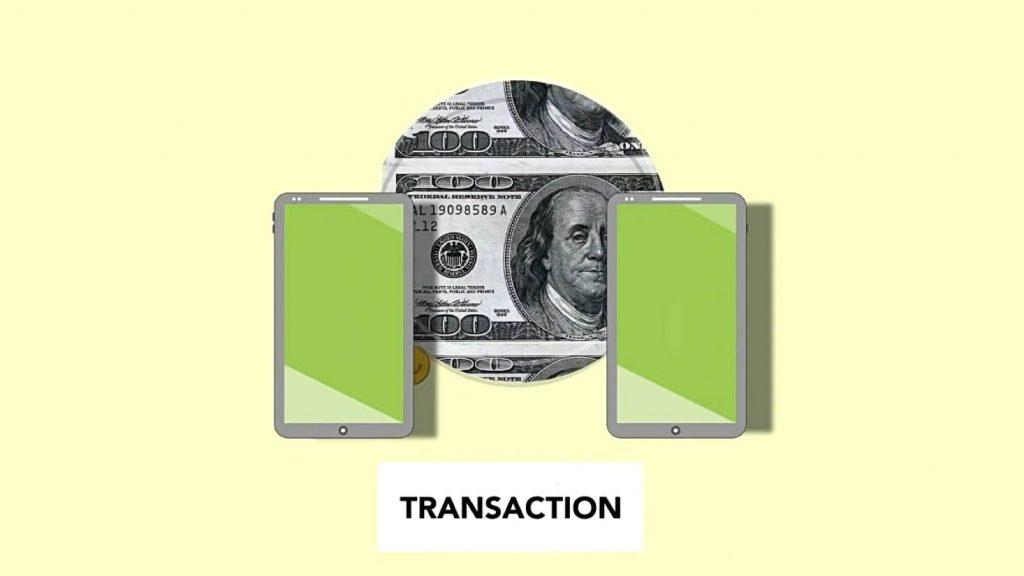Introduction:

In this post, we will look at what are certified funds and all helpful information about it. Please read this article to the end to learn more.
Certified funds are payments that are guaranteed for clearance by the financial institution. This is especially beneficial for landlords, who need to know that their funds will pass the bank before a renter comes in (especially before a move-in date).
Certified checks, cashier’s checks, and money orders, in general, provide higher protection than ordinary personal or company checks. Having said that, it is usually a good idea to wait for funds to clear before utilizing them.
Below is all helpful information about certified funds. And if you have any questions, please use the comment form below.
What Are Certified Funds?

Certified Funds are a type of payment in the United States that is guaranteed to clear or settle by the entity that certifies the funds.
The most frequent type of certified funds is a certified check, which is used to guarantee a payment. You might withdraw the funds from your bank and pay the buyer in cash, because traveling with large sums of cash is dangerous.
A letter of certification from your bank is another popular type of funds certification. The bank places a hold on your account when it writes a letter verifying funds.
The two most prevalent kinds of fund certification are “certified funds” and “bank letters of certification.” For a modest price, you may get your funds verified by a bank, which will then offer you a “certified check” that you can use to pay someone else.
The certification provided by your bank assures that the authorized cheque or equivalent document will be honored or cashed. Both are susceptible to duplicity.
What Are The Types Of Certified Funds?
These are the categories of certified funds:
-
Certified Check
A personal check that has been confirmed as valid and funded by the payer’s bank is known as a certified check. It is a form of “official” compensation. Cashier’s checks and certified checks are frequently confused by individuals.
Certified checks are frequently required in circumstances when the receiver is doubtful about the account holder’s creditworthiness or does not want the check to bounce.
When buying expensive things, a certified check is helpful. Writing a check is safer and more practical, but the payee might prefer greater security. The beneficiary of a certified check is aware that the bank has confirmed the check’s signature and the existence of sufficient money.
-
Cashier’s Check
A check that is written on the bank’s own funds, guaranteed by the bank, and signed by a cashier is known as a cashier’s check.
Since the bank, not the buyer, is in charge of making the payment, cashier’s checks are seen as guaranteed funds. They are frequently necessary for deals involving real estate and brokerage.
When a significant amount of cash is required, often anything above $1,000, cashier’s checks are used.
For the down payment on a car or to pay the security deposit on an apartment, you might require a cashier’s check. Additionally, customers utilize them to pay businesses that only accept cash in cash transactions.
Cashier’s checks are available at bank and credit union branch locations. They can also be reached via phone or on the websites of several financial institutions.
Be prepared to pay a shipping cost if you purchase a check online. Some conventional banks provide multiple options for obtaining a cashier’s check.
-
Money Order
A money order is an order to pay a certain sum of money. It is a more reliable form of payment than a check since it demands that the money be paid for the full amount stated on it.
Compared to certified checks or cashier’s checks, money orders offer more protection for both senders and recipients.
A money order is a check-like paper document that is used to make payments. A cashier accepts cash or other forms of guaranteed funds in exchange for a money order, plus a service charge.
The order is printed, you fill out the necessary information, and it is then sent or delivered to the company you are doing business with.
There is a small fee for each money order, which at some merchants and check cashing businesses might be approximately $1. Money orders up to $500 cost $1.45 by USPS, while those between $500.00 and $1,000 cost $1.95. In a retail bank, money orders can cost up to $5.
Are Certified Funds And Cash The Same Thing?

Certified funds are likely not the same as cash.
A draft written by the owner of the bank account is known as a certified check or a certified funds check. Banks validate the signature and the existence of the funds before holding them till the transaction is finished. Despite being written by the account holder, the certified check is certified at the bank.
A check issued by a bank on a balance held with another bank is said to be written in “certified funds.” It refers to a domestic bank check that has been drawn on by the bank itself as a cashier’s, treasurer’s, or official check. It does not imply a trust account check for an attorney.
The most frequent type of certified funds is a certified check, which is used to guarantee a payment. You might withdraw the funds from your bank and pay the buyer in cash, since traveling with large sums of cash is unsafe.
A letter of certification from your bank is another popular type of cash certification. The bank places a hold on your account when it writes a letter verifying funds.
Quick Note:
The democratization of digital printing has made it possible for anybody with a digital printer and Photoshop skills to fake a cashier’s check, a money order, or a letter of certification.
Unless the fake paper is quite valuable, it will most likely be processed by a bank teller with no particular expertise. Check fraud was reported by 75% of reporting US banks in 2016, and it is increasing year after year. So kindly take note.
How Are Certified Funds Used?
- In front of the teller, write the check.
- To the teller, provide your ID.
- Watch while the teller checks the money before stamping or indicating that your check is certified.
- Pay whatever service fees your bank imposes on you.
Certified Funds are a type of payment that is guaranteed to clear or settle by the entity that certifies the funds.
A certified check is usually required when making a major purchase (such as a down payment on a property) or when making a transaction from a stranger (such as a private party car sale or buying used merchandise from an individual online).
Quick Note:
Genuine certified checks are equivalent to cash. When trading products or services in a significant transaction, this might assist put your mind at ease. However, like with any money-related circumstance, take caution to prevent falling victim to documents forgers.
Also take note that the bank has the authority to place a hold on the whole amount of the cashier’s check, if it has any reason to suspect the check. Which will also not be collected from the paying bank.
A certified check, on the other hand, is more like a personal check than a cashier’s check: Because the funds are sent directly from your bank account, you are liable if the transaction fails.
Are Bank Checks Considered Certified Funds?

A certified fund is not a bank check.
A bank check is a check that you can purchase from a bank in order to pay someone who does not take a personal check. Payments must be made in US dollars by credit card or bank check.
A certified check, also known as a certified funds check, is a draft written by the bank account holder. Banks validate the funds, confirm the signature, and hold the funds until the transaction is completed. The certified check, while written by the account holder, is certified at the bank location.
Bank employees sign cashier’s checks, whereas customers sign certified checks. Official checks from a bank include cashier’s checks and certified checks.
Both are widely accepted as being more secure and less prone to fraud than personal checks, as well as being simple to get and reasonably priced.
Banks validate the signature and the existence of the funds before holding them till the transaction is finished. Despite being written by the account holder, the certified check is certified at the bank. And a certified check may incur a cost from the bank.
What Exactly Are Non-certified Funds?
Certified funds ensure that the landlord will be paid. Non-certified funds, on the other hand, are essentially simply a personal check.
If a landlord attempts to deposit a personal check, the check may bounce and payment may be disallowed.
Certified funds, whether wire transfer or cashier’s check, are the title company’s technique of ensuring that both parties’ money are in good standing.
Quick Note:
A certified check adds an extra level of confidence that the check is genuine and will not bounce by ensuring the availability of money for the transaction.
Although a certified check can help safeguard against fraud and bounced checks, always keep in mind that scammers can produce phony certified checks that seem real. So be cautious.
Another Reading Suggestion
Are Wire Transfers Same As Certified Funds?

Wire Transfers are not the same as Certified Funds.
Companies use certified funds, such as a wire transfer or cashier’s check, to reassure both parties that their funds are legitimate.
Some people could choose to use wire transfer as an alternative.
You could choose to transmit the required amounts rather than bringing in a paper check if you don’t have the time to visit your bank or wish to handle everything electronically.
A certified check is not the same as the checks in your checkbook. When a cashier’s check is presented, the money is held in escrow until it is deposited or voided.
When money is transmitted directly from one party to another, it is known as a wire transfer. There is no check involved and a wire transfer is as quick as it gets.
For international and virtual closings when you can’t meet in person, wire transfers are fantastic. They offer a terrific method to transmit money securely and are generally extremely safe.
The biggest disadvantage of wire transfers is that sending and receiving, banks may charge fees, however this can more than make up for the ease and security they provide.
Cashier’s Check Or Certified Checks: Which Is Safer?
Cashier’s Check is safer.
A cashier’s check is guaranteed by the bank, which means that if the check bounces, the bank is liable. You guarantee the check you write from your account when you use a certified check. Cashier’s checks are now possibly a little more expensive to get while also being safer.
Both are widely accepted as being more secure and less prone to fraud than personal checks, as well as being simple to get and reasonably priced. The distinction is that whereas certified checks are drawn on the account of the check writer, cashier’s checks are drawn on the account of the bank.
Quick Note:
If you’re sending money to someone you don’t know or receiving money from them, a certified or cashier’s check is a suitable alternative.
Verify whether the payee has a preferred method of payment before proceeding since they can demand you to utilize one or the other. You could discover that a payee demands you use a cashier’s check for exceptionally big sums because the guarantees on these checks vary.
Which Is Preferable, A Certified Check Or A Money Order?

Money orders are often thought to be less secure than cashier’s checks. A cashier’s check has more security measures than a regular money order, despite the fact that they can be check scams when utilizing cashier’s checks and money orders. But the cashier’s check is low.
You can use a money order or cashier’s check in place of cash or a personal check if you like. Both are seen to be safer payment methods than personal checks. They are different in terms of availability, price, and appropriate times for use.
The main distinction between money orders and cashier’s checks is that money orders come in lower denominations but are less expensive and simpler to obtain. Cashier’s checks are preferable for larger purchases but also frequently cost more.
Money orders and cashier’s checks may appear to be equivalent, yet in some circumstances one is more beneficial than the other.
When you need to mail a payment but don’t want to send a check or cash, you should use a money order.
A cashier’s check, on the other hand, is a preferable choice when: The size of the purchase exceeds the money order maximum.
Is A Personal Check Considered Certified Funds?
Absolutely not exactly.
A certified check is a form of personal check written on the account of a bank client. However, unlike a conventional personal check, the check is “good” as determined by a financial institution.
In other words, the bank validates (or certifies) that the consumer has enough cash in their account to pay the check’s amount.
Personal checks are individual slips of paper printed with your bank’s routing and account information. When you pay with a check, your payee puts it into their account. The money is transferred from the recipient’s account to the original payee’s account by your bank.
Additionally, certified checks are taken from the signatory’s checking account and must be verified by the bank.
A certified check might cost up to $15 at some banks. Not all banks provide certified checks; you should check with your bank to see whether they do. If your bank does not accept cashier’s checks, you may be required to supply one instead.
How Can You Know Whether It’s A Certified Check?

A bank official signs the check in addition to the account holder’s signature. The phrase “certified” or “accepted” is printed anywhere on the check. Certified check might cost up to $15 at some banks.
A certified check is a sort of check that is also issued and confirmed by a financial institution. A certified check, on the other hand, is more like a personal check than a cashier’s check: Because the funds are sent directly from your bank account, and you are liable if the transaction fails.
You don’t have to worry about carrying huge amounts of cash when you use a certified check, and the seller can be certain that your check will not bounce.
Also a certified check will often clear promptly, generally the next business day after the receiver deposits the check. As a result, you can select it as a payment method.
Another Reading Suggestion
Can A Certified Check Be Cashed By Anyone?
Absolutely none. The bank deposits the money and then writes a cashier’s check for the required amount to the chosen payee. The check may only be redeemed by the named payee, and settlement is often faster than with a personal check.
If you need to cash a cashier’s check, go to the issuing bank or financial institution, however there may be costs if you aren’t a customer.
You may normally cash a cashier’s check at the issuing bank once you endorse it, regardless of the amount drawn, even if you don’t have an account there. A cashier’s check can also be cashed in a check-cashing store, however there may be a cost.
Quick Note:
A certified check is a personal check that has been certified by the bank and is written on personal funds.
The certification procedure physically stamps the check indicating it is now a certified check and earmarks the cash for that check. And the majority of banks will not release such cash for any other purpose. Please keep this in mind.
Final Thoughts
Funds can be certified for a minimal cost, generally through a bank. The certification of your bank ensures that it will honor or cash the certified check or associated document.
Certified checks and bank letters of certification are the two most prevalent types of financial certification. And also take note that both are vulnerable to deception.
Certified checks can be used for significant sums of money and the payee cannot put a stop payment on the check since her bank is responsible for the cost.
If this article was helpful to you, please let us know in the comment section below and also subscribe to this blog. Thanks.


